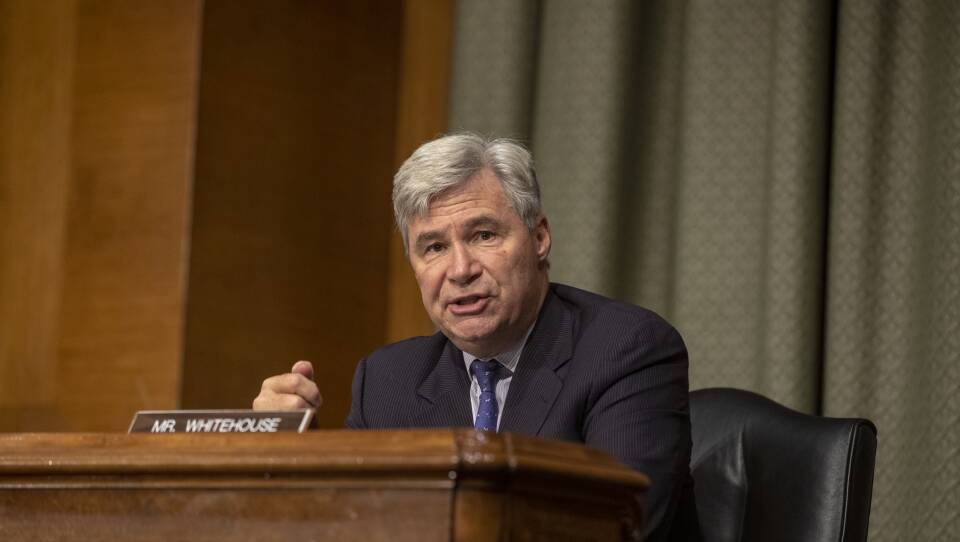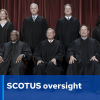Earlier this week, the Supreme Court released a statement stating they will continue to oversee their own actions for ethical violations, and maintain control over whether they should recuse themselves from cases with financial interests. The statement was signed by all nine justices.
If the justices were treated like any other person involved in a lawsuit, Sen. Sheldon Whitehouse (D-RI) said “they’d get blown out of court, they’d be laughed at.”
“It’s really stunning the people who are at the very height of the legal profession would put forward such a preposterous document,” the senator said Friday on Boston Public Radio.
The statement was attached to a letter Chief Justice John Roberts wrote to refuse to testify in front of the Senate Judiciary Committee. The hearing is in response to criticism of Justice Clarence Thomas’ receiving undisclosed luxury vacations and trips paid for by billionaire Harlan Crow, first reported in an investigation by ProPublica. According to the ProPublica investigation, at least one of Justice Thomas' vacations cost over $500,000.
More National News
Whitehouse said when justices take large gifts from people with business and political interests that the Supreme Court affects, those gifts can undermine the judicial process and erode trust.
“It is highly corrosive of trust in that impartiality,” said Whitehouse.
Other Supreme Court justices have also faced scrutiny over gifts and trips. But unlike Justice Thomas’ gifts, most of these were disclosed.
Whitehouse is a member of the Senate Judiciary Committee, which introduced a measureto require Supreme Court justices to be held to the same code of conduct as members of Congress and other federal judges. At a minimum, Whitehouse said, this means disclosing large gifts. A committee hearing will take place on May 2, without Chief Justice Roberts present.
“I think Congress has solid authority to require basic ethics requirements in the executive branch of government, over ourselves and in the judicial branch of government,” Whitehouse said. He emphasized this would be regulation of justices' administrative conduct, not their judicial decisions. This would require the Supreme Court to have an enforceable, formal code of conduct, which it does not currently have.
It’s unclear how much legislation Congress will be able to enforce, but Whitehouse is hoping for bipartisan support. He said Republican Sen. Lindsay Graham has expressed support for the Supreme Court reporting rule.
“That shouldn’t be asking much. Everybody already does it,” Whitehouse said.









